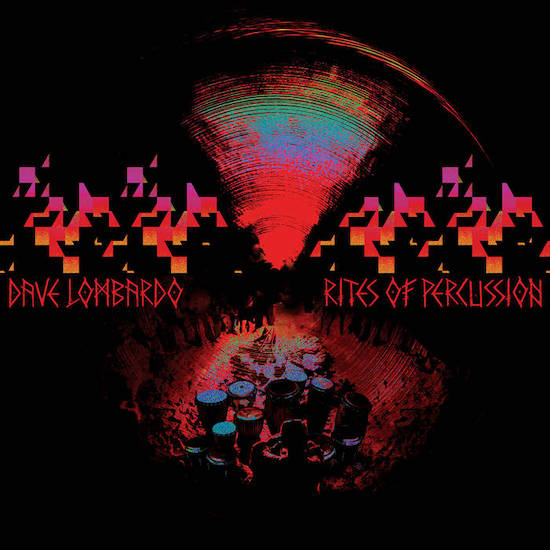An album composed more or less entirely of drums might sound like a hare-brained idea but it’s certainly not without precedent. Nigerian percussionist Babatunde Olatunji’s Drums of Passion became a cornerstone of what would become “world music” after it was picked up by influential New York hipsters in 1959; Columbia would go onto sell five million copies of the record around the world. The LP that Harry Belafonte gave to French chanteur Guy Béart was played to Serge Gainsbourg, who had the idea to rip off its rhythms for his 1964 album Percussions, the unheralded start of another genre based largely on sonic larceny.
Other albums that followed in Babatunde’s wake include the 1953 On The Streets Of New York by blind percussionist Moondog, and A.K. Salim’s hybrid Afro Soul / Drum Orgy later in 1965. Moreover, the Indian tabla player Zakir Hussain has made a long career out of percussive albums while the Puerto Rican musician Tito Puente – often mislabelled under exotica – became one of the main sources of inspiration for Dave Lombardo’s first solo album, Rites Of Percussion.
Slayer drummer Lombardo had mentioned his intention to make a drum album to Mike Patton when he joined the supergroup Fantômas in 1998. Patton brought out Puente’s Top Percussion album from 1958 which he enthused about, encouraging the Cuban-American to pursue his idea. As one of the busiest men in showbusiness, there’s barely been time to pause in Lombardo’s schedule, at least until the pandemic. With newfound time on his hands, he began working away purposefully in his purpose-built studio at home, learning how to use it as he went.
Rites Of Percussion is a fine addition to the lineage of drum albums largely thanks to his sense of intuition. Where certain powerhouses from the Big Four might spend their time collecting very expensive art and then selling it on at a premium, Lombardo has developed a fascinating relationship with the esoteric. He may have driven one of the heaviest bands of all time, but he is also just as comfortable in the company of John Zorn, DJ Spooky or the Italian conductor Lorenzo Arruga, who he made an intriguing Vivaldi album with in 1999, featuring some uncustomary (for classical music) full-throttle pounding of the drums. It turns out to be far more sonically homogeneous than you might have expected.
It’s not all baroque virtuosity and hobnobbing with the avant garde intelligentsia on Rites Of Percussion: the strongest influence comes from John Bonham of Led Zeppelin, whose ‘Bonzo’s Montreux’ drum solo can certainly be heard echoing down through time on opener ‘Initiatory Madness’. That track sets us up nicely for the rest of the 35-minute album, which never really veers away from the task in hand, even if the rhythmic patterns get switched up frequently.
These following tracks often feel more like sketches, coming in at one minute (‘Blood Let’), two minutes (‘Inner Sanctum’) and three minutes (‘Interfearium’), throwing up experimental rhythm tracks with doomy soundscapes and in the case of the latter, some atmospheric staccato piano stabs which feed into a vortex of enveloping space noise. There’s urgency as you’d expect from tracks like ‘Warpath’ and a sense of foreboding on ‘Vicissitude’. How often you’ll want to sit down and listen to this album as a whole probably depends on your interest in percussion, but don’t be at all surprised if DJs and sample hounds don’t feast on Rites Of Percussion in the same way Gainsbourg devoured the rhythmic outpourings of Babatunde almost 60 years ago. If Lombardo is busy now then just wait until he starts getting all those clearing requests.


